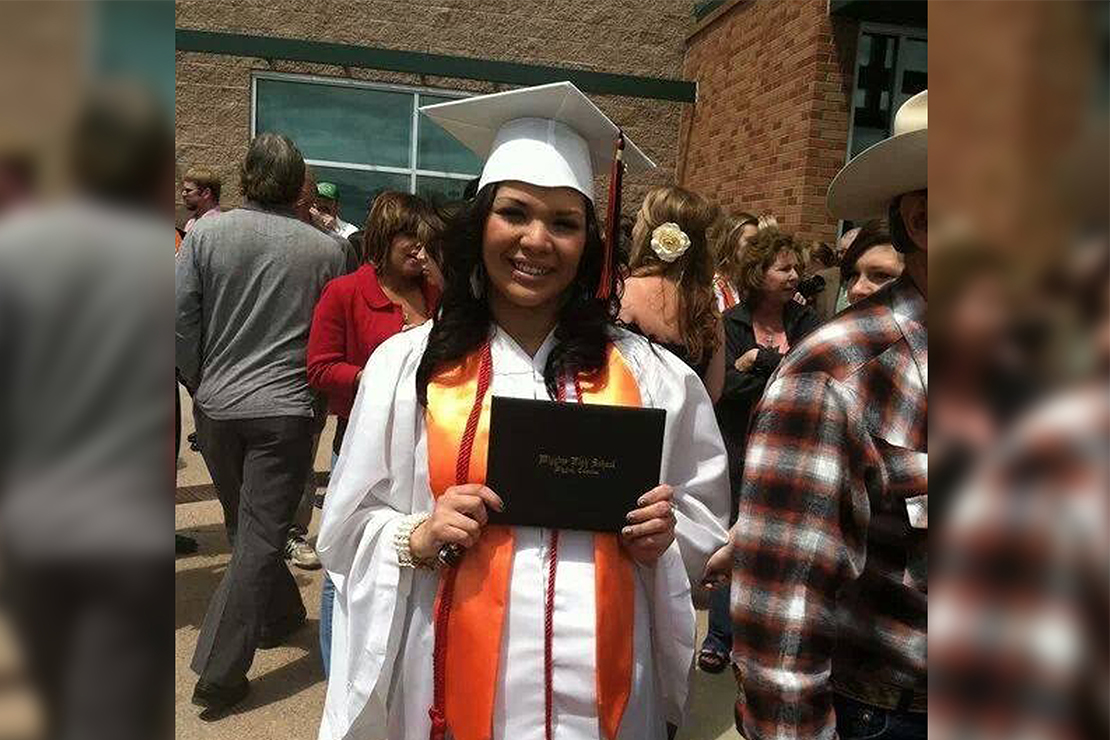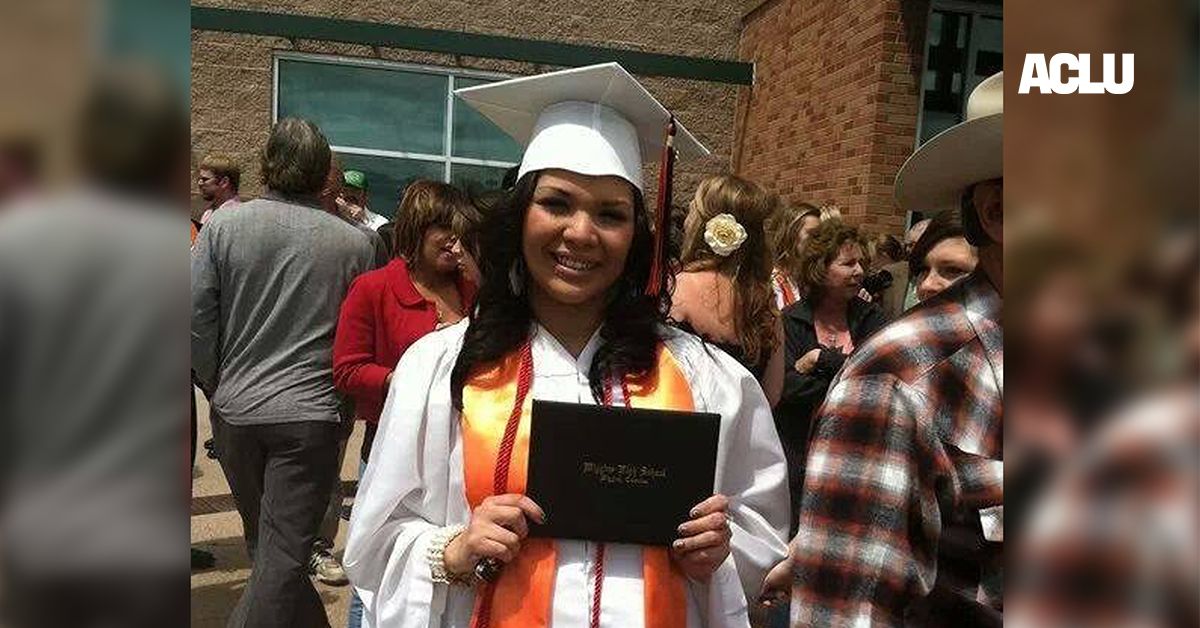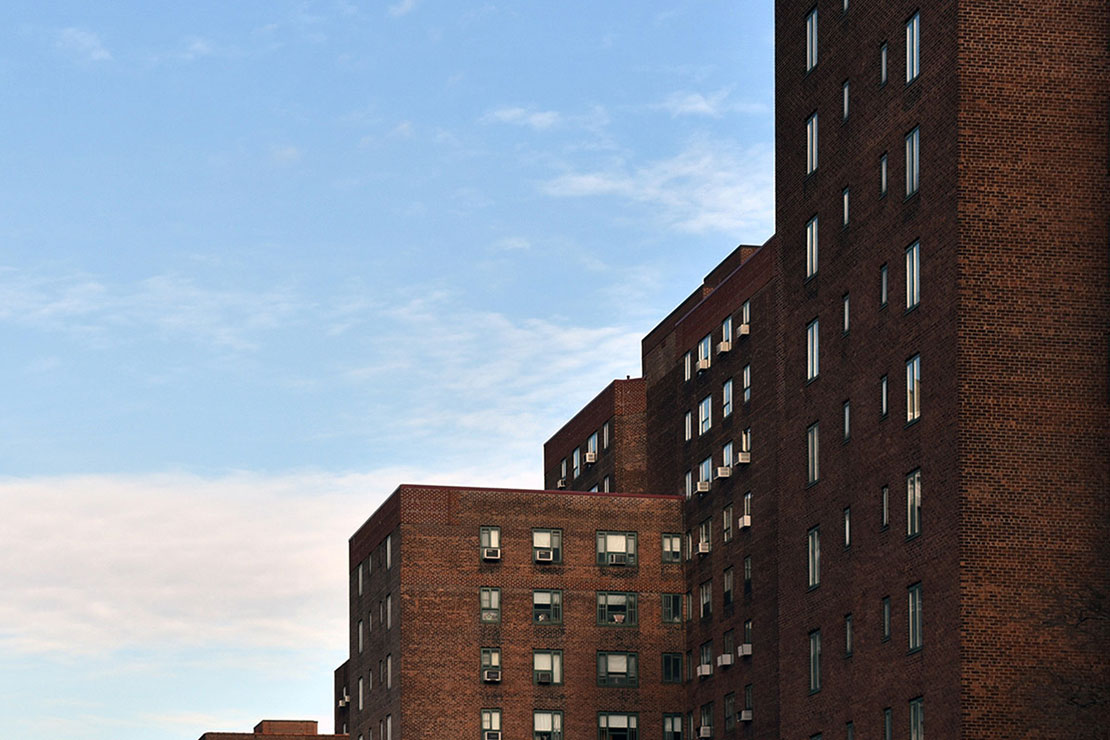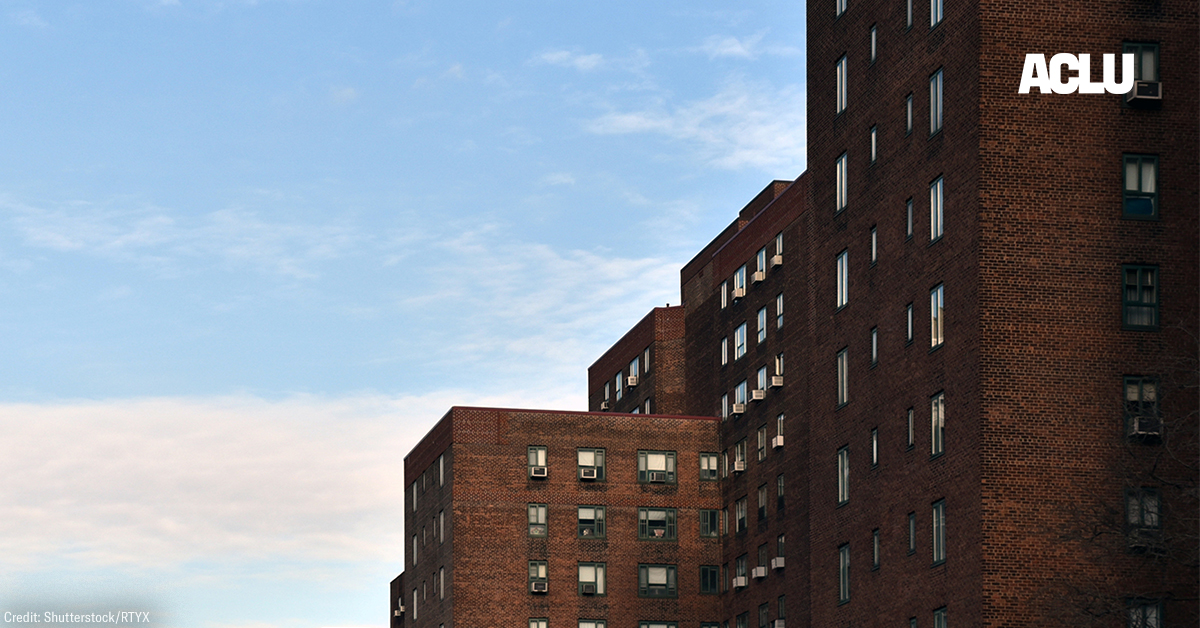Anahi Jaquez–Estrada is scared. As soon as Monday, she may be deported to a country she hardly knows: away from her 8-year-old daughter and her husband, both of whom are United States citizens. She has lived in the U.S. almost her entire life and is in the process of becoming a lawful permanent resident. Her story is at once exceptionally tragic and a paradigmatic example of how our immigration legal system is failing — and tearing families apart.
I met Anahi in late July at the Immigration and Customs Enforcement (ICE) detention site in Aurora, Colorado, where she has spent the last year and a half. She shared her story through tears. She came to the U.S. at age 3 and grew up in the small town of Wiggins, Colorado. She was president of her senior high school class, played volleyball and basketball, and graduated with honors.
“I know my story [is] maybe one of a million stories regarding immigration, but I pray many people read [it].”
We are sharing her story here in the hope that it will shame the Department of Homeland Security into putting the brakes on her deportation — a step that would not only be compassionate, but logical.
Anahi has an approved petition for residency based on her marriage to a U.S. citizen and has filed an application for adjustment of status — if she wasn’t about to be deported, she would be free and awaiting her green card. The dark irony of her situation is this: While one arm of DHS is processing her green card application, the other is fighting in court to take her from her family and deport her before her application can be approved.
“I am truly scared I will be deported before my green card gets approved. With that I will [be] leaving my baby girl behind. The only difference from her to me is she is growing up without her mother.”
Her daughter Yasailie was born with a cleft palate. Since Anahi’s detention, 8-year-old Yasailie has been diagnosed with depression and borderline bipolar disorder. She is struggling in school, back in Wiggins, Anahi’s hometown.
Anahi describes her situation in a letter from August 14 to the ACLU:
“482 days of tears, fear, stress and confinement!”
Anahi had DACA status since 2015, but her nightmare began in 2018 after she pled guilty to misdemeanor insurance fraud and lost her DACA status. An insurance agent, she improperly sold insurance due to what her lawyer called “misplaced compassion for her home-owning client.” Though she never served time, she received a deferred sentence, she lost the protection that DACA status had conferred on her. In spring 2018 ICE detained her and placed her in deportation proceedings despite the fact she’s lived in the U.S. for more than 24 years.
ICE initially released her on a $5,000 bond to await the outcome of her case, but her ordeal was just beginning. An immigration officer reached out to ask her to return to the ICE field office and fix an error in her bond paperwork. She asked if she would be detained again, since she might be making the trip with her daughter, but he assured her she would not be.
Anahi was right to be worried, it was a classic ICE bait and switch. She arrived at the ICE field office and was told to take a seat. She expected to review paperwork — as ICE had told her over the phone — but minutes later, ICE officers handcuffed her and took her away. Anahi’s detention in Aurora would continue for months at a site where the ACLU of Colorado has documented medical neglect and abuse.
“We face many challenges here, which include no contact visitations with our family, lack of hygiene products, bad medical attention, and bad nutrition. We at times do not get our blankets washed up to 2 or so months…. At times, we do not have toilet paper, feminine pads, or paper towels for our dorm.”
Anahi told me that after an infectious disease outbreak at Aurora, medical staff drew blood from detained women in the open dorm area. They reused the same examination pads for each woman, even “after having blood from [other] detainees drip onto it.”
“This has been my nightmare for 482 days and counting. Being kept away physically from my daughter[,] not being able to even hug her is also very tormenting; which is something many mothers in this facility feel.”
Anahi’s lawyer had won a stay of removal pending a decision on her appeal and green card application, meaning ICE had to hold off on her deportation. But ICE kept her in detention and appealed the stay. On Wednesday this week, the Tenth Circuit Court of Appeals vacated Anahi’s stay of removal — so now ICE can deport her, despite her ongoing legal fight.
According to her lawyer, Anahi wants desperately to be out of detention. Unfortunately, ICE refuses to release her unless she consents to her own deportation. The laws and policies governing Anahi’s case are illogical, unjust, and inhumane.
And the Trump administration is deploying them to effect maximum cruelty. ICE has set an ugly price for Anahi’s freedom: losing her family and her home.
Naureen Shah, Senior Advocacy and Policy Counsel, ACLU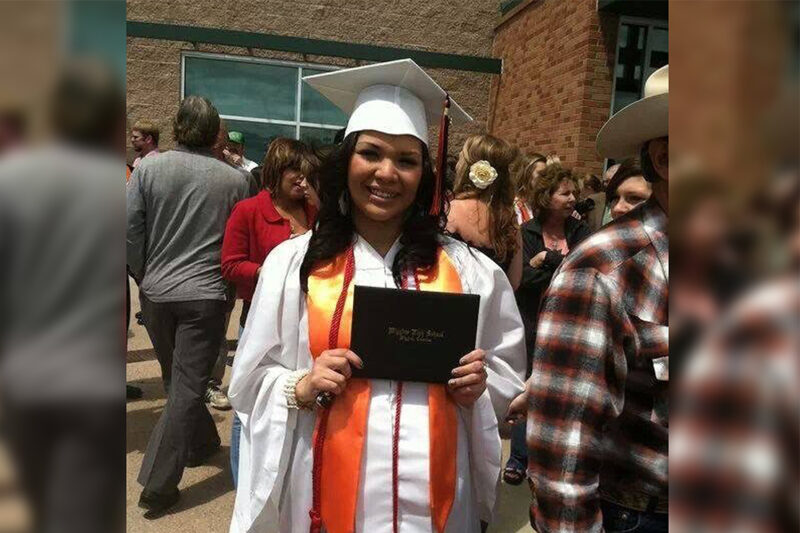
Date
Friday, October 18, 2019 - 3:30pmFeatured image
